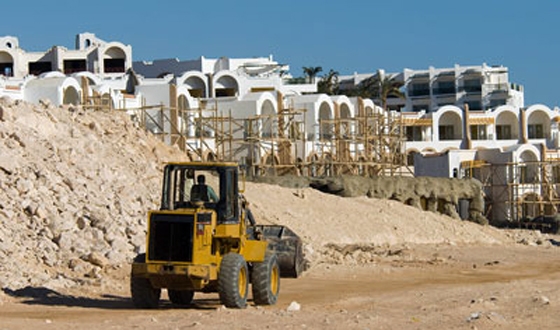SODIC, one of Egypt's largest listed real estate developers, says the state must find new ways to allocate land at lower prices if it wants the private sector to help meet a massive demand for housing.
Government property schemes over the years have failed to alleviate pressure from the largest Arab nation's overwhelmingly young population, which is priced out of many private development projects.
President Abdel Fattah al-Sisi has partly staked his credibility on improving living standards in a country of 90 million people where two-thirds of the population is under 30, including greater access to housing.
Changes to land allocation could encourage companies such as SODIC to enter lower income segments, SODIC Managing Director Ahmed Badrawi told Reuters in an interview.
"There is a gap that's not being addressed and I don't think it's the government's role exclusively to do social or low income housing," he said.
Property developers acquire much of their land through auctions by the state, which owns vast swathes of territory, mostly in the desert. But developers say not enough land is being released for housing projects.
The scarcity increases land prices and puts most new housing developments beyond the reach of all but the richest Egyptians. A system that provides more land at cheaper prices would make more affordable housing attractive to developers, Badrawi said.
ROLE TO PLAY
"We need to move away from this whole auction thinking if they want developers like us to start to address the more middle income market," he said in the interview.
"The private sector has a role to play in the middle income sector and that role is significant because it can really help to drive the economy up," Badrawi said.
Sisi, the former army chief who ousted Egypt's president in 2013 following mass protests, has promoted several housing schemes, including a $40 billion project with Dubai-based Arabtec to provide a million units.
But those properties have been slow to materialize, and the projected price for units in the Arabtec project have risen out of reach for ordinary Egyptians.
Badrawi said competition in the current land allocation system drives up prices, helping fill state coffers but undermining the goal of affordable housing. Direct land allocation could solve the problem, but would be criticized as not being transparent.
Charges of corruption in land deals have plagued the industry for years. Practically every major project and developer came under public scrutiny over land purchases following the 2011 uprising.
"Whichever way you do it, you're going to be open to those allegations," Badrawi said.
He suggested sub-development of mega-projects operated by Gulf developers, including a new capital city east of Cairo, could be a solution: "Egyptian developers should have the equal opportunity to participate in these projects."
SODIC , also known as Sixth of October Development and Investment Company, is targeting sales of 4 billion Egyptian pounds ($524 million) this year, up from 3 billion in 2014.
($1 = 7.6300 Egyptian pounds)
Reuters
22 May
























































